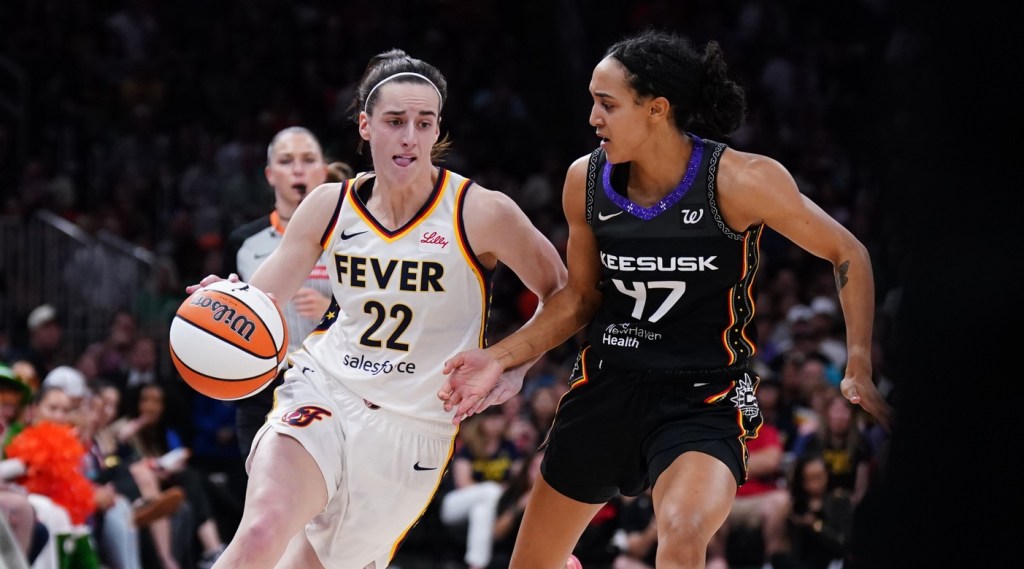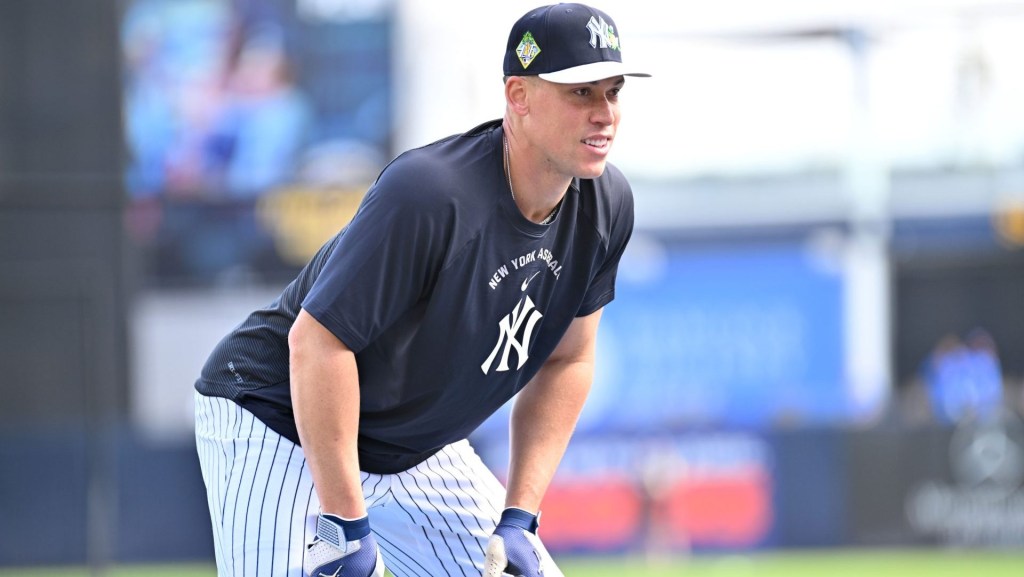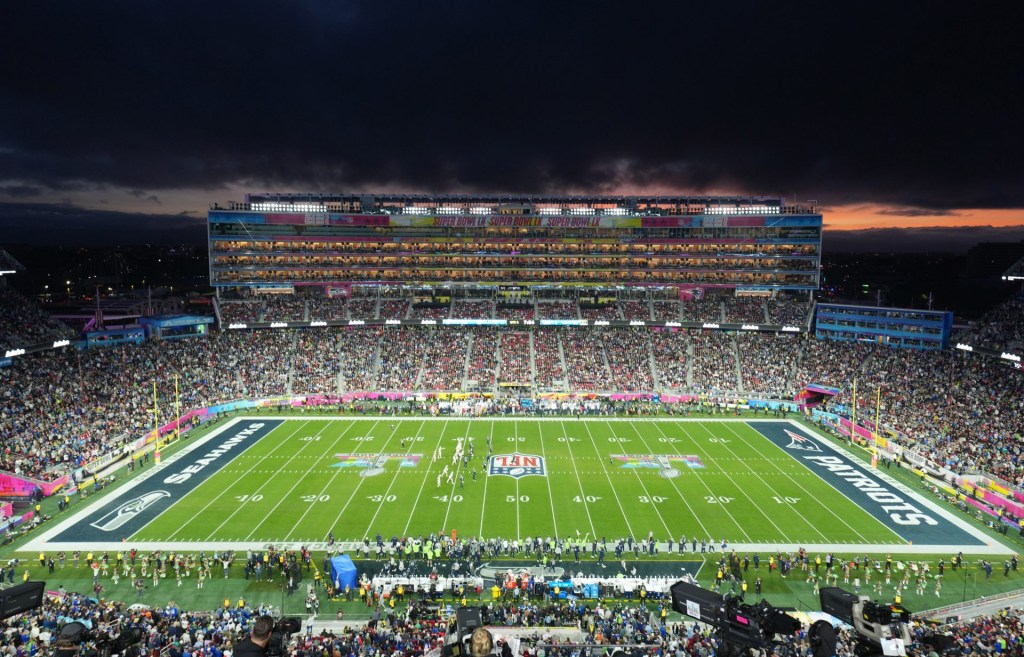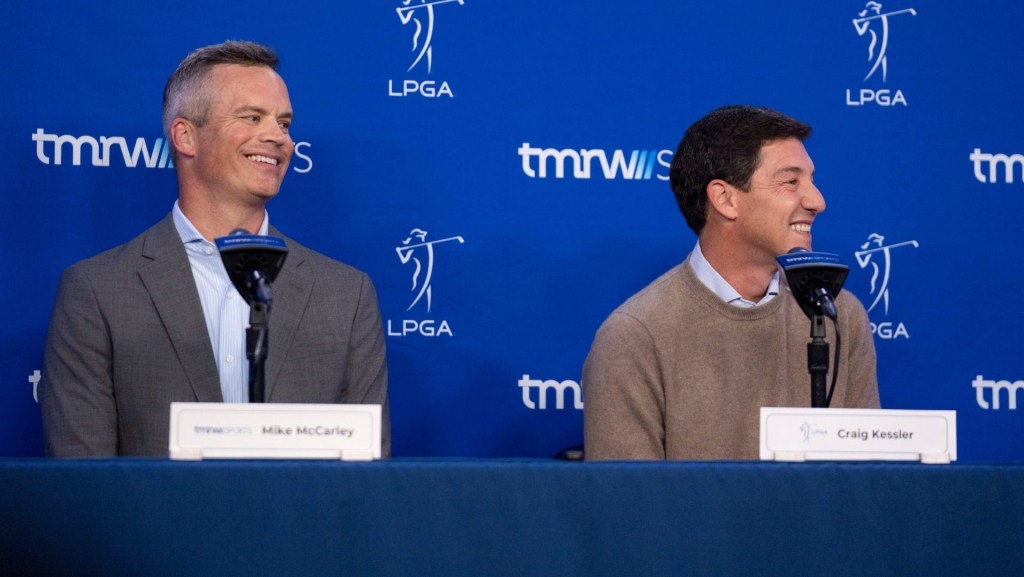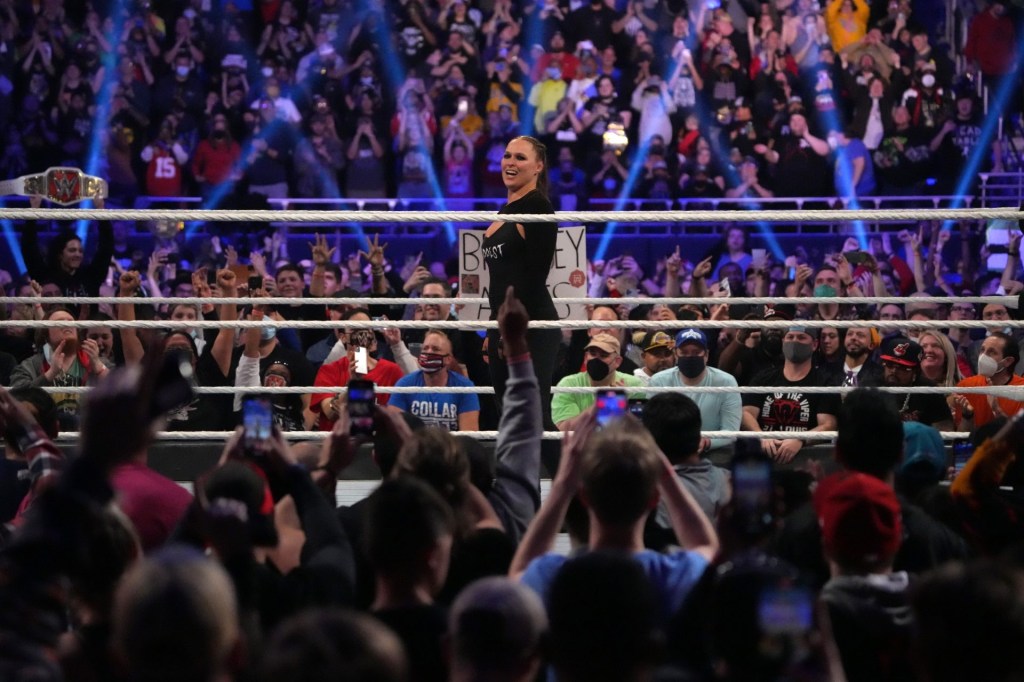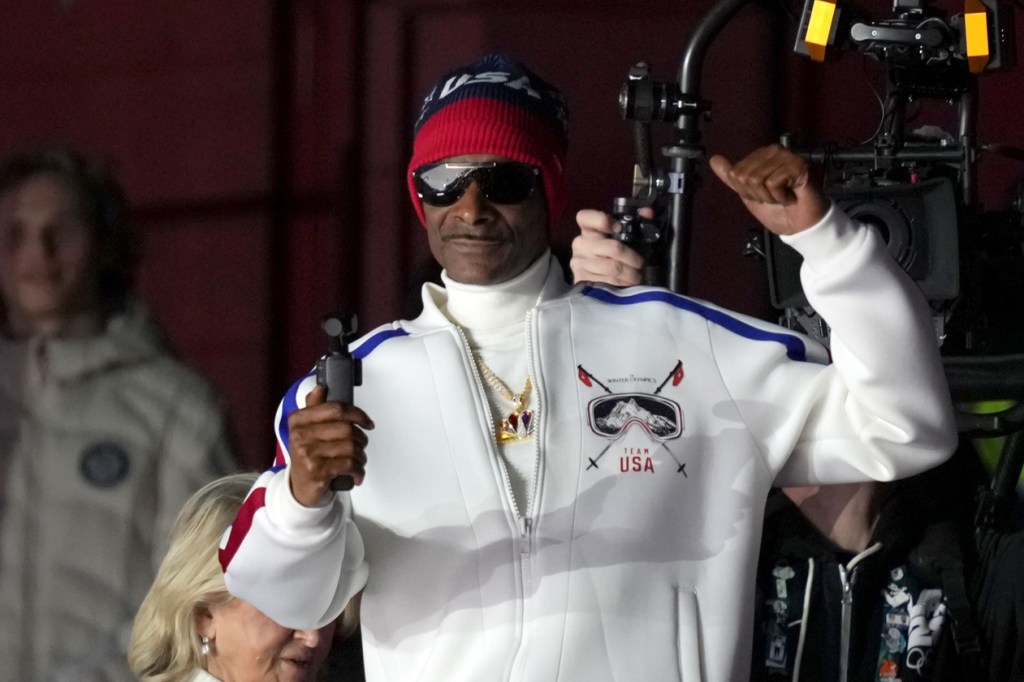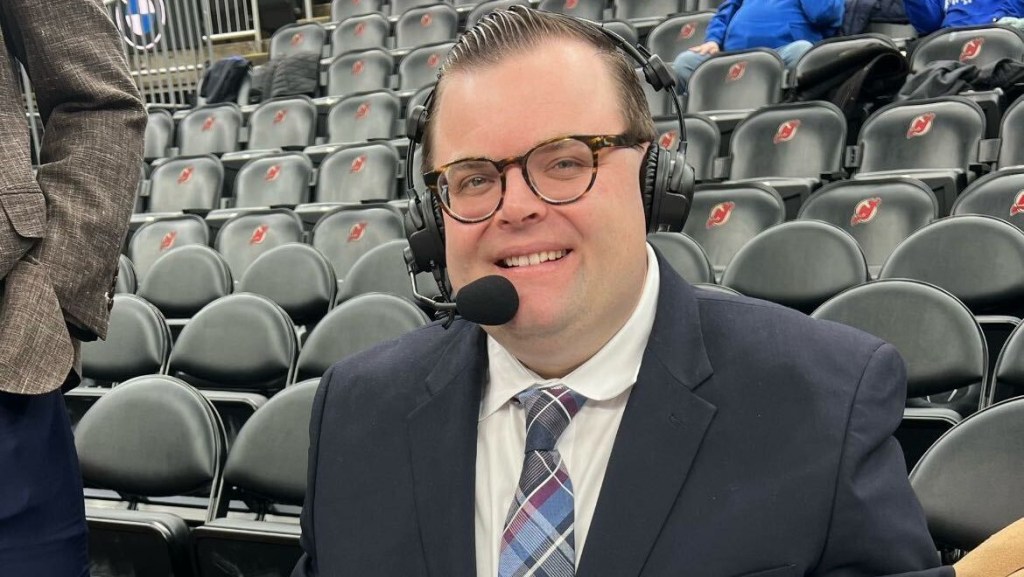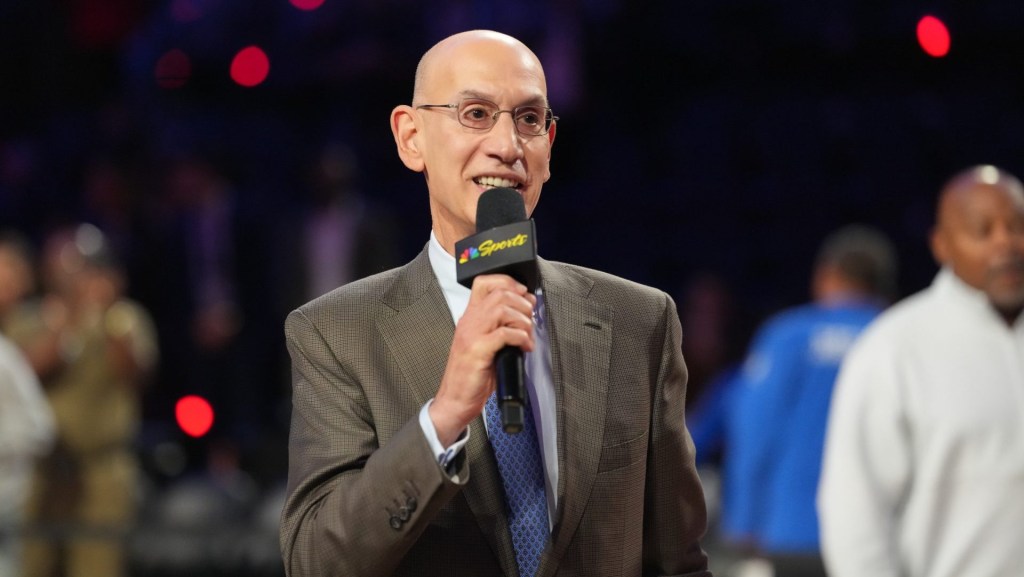Around the Horn—the mainstay, half-hour sports discussion and debate show at ESPN’s 5 p.m. ET block—will air for the last time on May 23. No more point systems. No more mute buttons.
When it debuted on Nov. 4, 2002, the show was written off as “30 minutes of hell” featuring host Max Kellerman, who awarded (and subtracted) points to four columnists (to start: Bob Ryan in Boston, Jay Mariotti in Chicago, Woody Paige in Denver, and T.J. Simers in Los Angeles) yelling at one another over the day’s various sports headlines.
But once Tony Reali took over as host in 2004, the show found its groove and became a ratings hit. “It felt like these guys were the authorities on these towns and you felt like you were getting a national perspective every single day,” Kevin Clark, an NFL reporter and podcaster who joined the show for its final two years, tells Front Office Sports.
To stay on the air for more than two decades and over 4,900 episodes, the show evolved. As the media landscape changed, Around the Horn expanded and diversified its panelists. It switched studios when Reali moved from D.C. to New York, added augmented-reality features, and stayed focused on fun. Most importantly, Reali made the show more human, enabling panelists to share meaningful tributes and personal reflections about life’s most difficult and common topics. “We were a quirky, nutty, bombastic, mostly wrong, sometimes right, crazy sports family,” Bill Plaschke, Los Angeles Times columnist and longtime panelist, tells FOS. “And I’ll miss that family here.”
FOS spoke with Around the Horn panelists to share their favorite memories from the show.
J.A. Adande
If you go back and watch the early shows, I think we were all pretty rough. You have to be really energetic and come out of your shell. It’s funny—a lot of people that got to know me after the show started would say, “Oh my God, you’re so much more animated on the show.” I’m a pretty low-key person in real life, but that’s just too dull for TV. You had to learn to be a lot more animated. And the nature of the show brings that out, too.
One episode that sticks with me: Kevin Blackistone got eliminated in the first or second elimination, but he had a really good show. Back then, when you got eliminated, the lightning bolt would come down and you would freeze on the screen. So we decided during the break we were going to unfreeze him and bring him back. It took a while to kind of work out the logistics and technical aspects of how they’re going to unfreeze him. But then he came back, and it was very dramatic. He went from being frozen to being back among us. That always stuck with me. It just spoke to the creativity of the show—the fact that we could change the rules or make up the rules on the fly.
Another one of my favorite shows was the first time we had the all-Black panel. It was me, Jemele Hill, Blackistone, and Michael Smith. I was proud of that. We all were aware of what was going on and we didn’t run away from it. We really played it up. I got eliminated early and my parting line was: “Damn, can’t even play the race card.” We had a lot of fun. I’m just going to miss having fun at work. I don’t think any other job would be as fun. But I’m not going to miss having to have an opinion on 10 different things a day.
Kevin Blackistone
When Max Kellerman was doing the show, you would have this debate with a panelist at the end of the show to earn your face time, not unlike today. The first time I advanced that far was against Bob Ryan. And the question was: “Who’s the greatest Phoenix Sun?” Bob Ryan waxed eloquently about Tom Chambers. And then I was asked, and I said, “The gorilla, the Phoenix mascot.” And I waxed eloquently about that. The look on Bob Ryan’s face as I did that was just priceless because he could not believe that someone would do that. And the funny thing about that is it introduced me to the reach that the show was having because shortly thereafter, I got a box in the mail with a T-shirt and a hat from the Phoenix Gorilla.
If I’m out of town covering a game, and I go into a visitor’s locker room or clubhouse, I would have to introduce myself: “Hey, I’m Kevin Blackistone from The Dallas Morning News, and I want to ask you …” Once the show became popular, I’d walk into that same locker room or clubhouse, and people would come over to me, and I wouldn’t have to make an introduction. It’s really been an aid to my journalism.
Tony is the heartbeat of the show. It would not be what it has become without his desire, without his fearlessness of being, without him putting his emotion into the show. It became a family. We celebrated marriages with our significant others by being at [panelists’] weddings; we celebrated the births in our families. We comforted each other during difficult times. Tony came to Washington, D.C., for my mother’s funeral. I’m sure he’s done that for others. I’ve got good friends now through the associations made on doing this show.
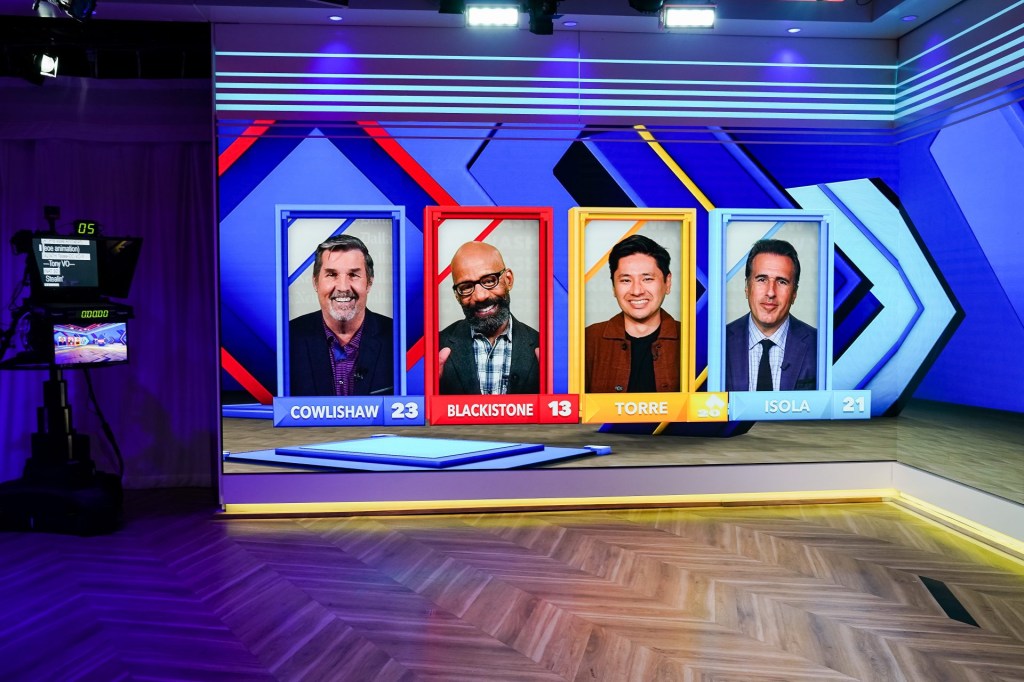
Kevin Clark
When I was watching in 2002, being on that show was a goal of mine. I played football my freshman year in high school. And one of the reasons I did not play my sophomore year was because I wanted to be home for the five o’clock block—Around the Horn and PTI [Pardon the Interruption]. Literally, one of the reasons I didn’t play was because I didn’t want the practice schedule going into 5:45 p.m. That was sort of the end of the era of the local columnists being almost like the de facto governor. They kind of spoke for everybody, and everybody looked to them to figure out what to think. And it was just a cool show to watch because of that. I also wasn’t good at football.
My first episode, Tony Reali came in really early and we’re able to get a coffee and just sort of talk about life and he was able to talk through some things. What was so different about it is that it’s live to tape. I’d never done a show before that wasn’t live.
I was just so nervous because the stakes are so much higher than a podcast; the stakes are so much higher than even any of the television I had done. I never get nervous and I was so prepared and I was watching a huge baseball game the day before—I’m not a big baseball guy, and I watched a full baseball game. I was just overpreparing, but I was just so in awe of the opportunity that I just wanted to make it count. I heard a quote one time: “The only people you need to please are the 8-year-old version of yourself and the 80-year-old version of yourself.” Well, childhood Kevin Clark is over the moon that he got to do two years of Around the Horn.
Not every topic was going to be the best analysis you’ve ever heard, depending on the sport, but we’re always going to try our best to entertain. And I’m going to miss how entertaining the show can be at its most unpredictable.
Tim Cowlishaw
I was literally in the newsroom—the news side, not the sports department—shooting the show. They built this desk and put the camera on this little two-foot-high platform, so I was raised up. I could reach out and touch people’s desks behind me. Every day at 2 p.m., I’m just yelling into a camera while these people are doing their jobs. And I was very conscious of that. They always told me, “You’ve got to be a little louder; you’ve got to be a little more animated.” And I was very conscious. It took me a while to just say, “Forget the people around me. This isn’t my fault. I didn’t choose to be here, but this is where they put me, and I’ve got to do this job.” So that was a big challenge.
I wore this racing suit from when I drove with Tony Stewart out at Texas Motor Speedway as a Halloween costume around 2008. And I put the racing suit on eBay and mentioned it on the show just to raise money for the North Texas Food Bank. I didn’t have any idea how it would go. And my kids and I watched the bidding go to around $2,000. We went to bed and got up the next morning when the bidding was over and a bond trader in New York had bid $11,400 for the racing suit. He was a very nice guy, and he had some money. And when he got contacted, he said, “Well, I’ll just round it up to $20,000.” And I had already gotten Tony Stewart to say he would match. So it raised $31,000 because I wore this racing suit on Around the Horn.
Mina Kimes
I did a lot of things before I switched over to working in television full-time. I did podcasting. I did a lot of sports radio. But in terms of teaching you how to prepare and calibrate your opinions, how to listen on television, which is really difficult and really important, and how to be succinct, because there’s essentially a time limit, Around the Horn is probably the single most helpful thing I did [for my television career].
One thing that’s lovely about the show is you can use it to give personal messages, or speak about causes that you’re passionate about, whether it was a fundraiser, a charity, or telling my dad happy birthday. It’s been so meaningful to me to be able to do that in those 45 seconds. One thing that comes to mind as far as opinions: Around the time that the Browns gave Deshaun Watson all of that guaranteed money, I remember being able to speak about what that meant and what that signified, and why so many people were so upset by it. And I’ve always appreciated the show for giving you this space to speak about things like that and how sports stories cross over to other parts of life.
When people think about Tony, they often, for good reason, talk about his empathy and how he is so kind and thoughtful and cares about people in a way that’s pretty rare. But I actually think that can overshadow the fact that he knows a fuck-ton about sports. The degree to which he’s both encyclopedic in sports history and also current … he knows as much about the league as most NFL analysts. He doesn’t show it off. It’s very subtle, but he really follows it. He’s so informed in a way that’s really special.
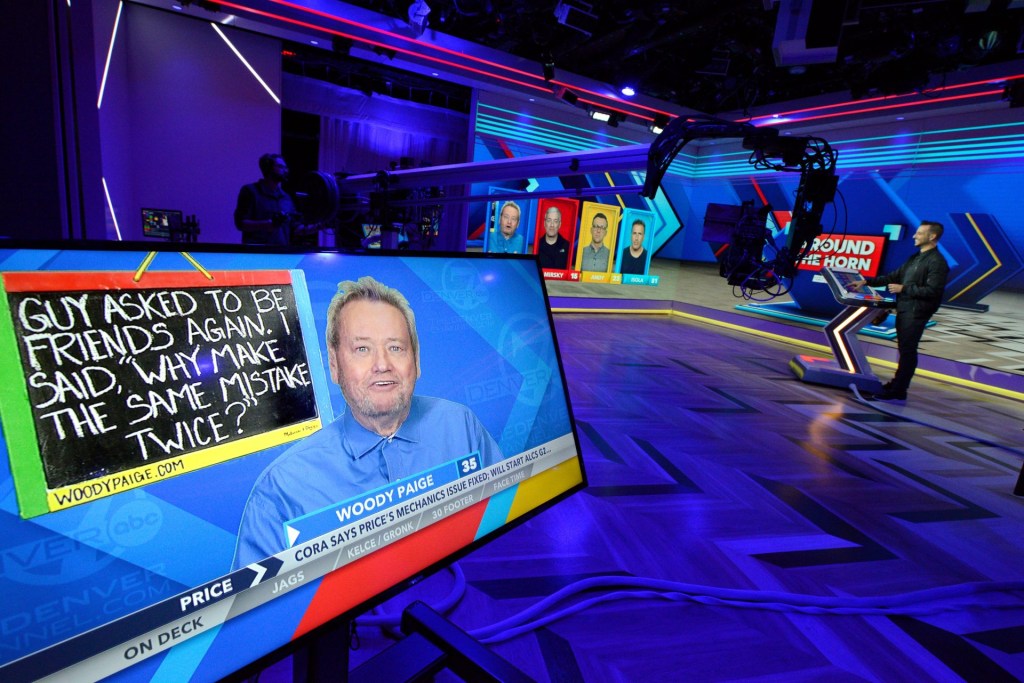
Woody Paige
When we got together in New York at [Katz’s] deli, it was the director, the producer, and like six of the original panelists that they put together. And Max [Kellerman] asked me if I lived on a farm because he didn’t know anything about Colorado. He assumed that we were all ranchers or farmers out here. And he groaned on and on about the Yankees and boxing, his two subjects. And after about 10 minutes listening to this, I got the feeling that Max thought it was his show, and we were just a few dummies that would help him. And I said, “Pardon me, Max. I know you think I live on a farm, but you have me confused for somebody who gives a fuck what you’re saying.” And [producer] Bill Wolff said, “That’s the show, guys.”
I went to New York [for Cold Pizza]. They put me in a studio that was empty. To this day, when people are remote, you see books and footballs and helmets. And I said to my assistant, “That’s bullshit. Let’s do something different. “How about a blackboard with something on it?” And we went to Toys “R” Us and bought a blackboard, and it had magnetic letters on it, only three E’s. He found a toy company in Pennsylvania that sold blackboards. So I came up with sayings just to have a background. I was trying to come up with something different. I got a call from Jim Cohen, the ESPN vice president, who said, “Lose the blackboard, that’s not ESPN.” We’d been doing it for about a month. Now I’m thinking I’ve got to put footballs back there. He called me a week later and said, “Put the fucking blackboard back up. I thought maybe there was outcry by the viewers. He said, “No, the president of the network likes it.” Now? The two most popular aspects of Around the Horn are inanimate objects: the mute button and a blackboard.
I think the show became more human. It became personal. Tony showed that in what he’s gone through. We all have. I think people appreciate that we’ve always sort of bared our souls in the 30 seconds when you win. I was having depression and Tony said, “You’ve got to talk about that.” I said, “People don’t want to hear about depression.” He said, “People need to hear about depression.” The shows where we’ve shown ourselves, our true life, I’ll remember.
Bill Plaschke
Those first years on the show were really crazy. After about six months, one of our [L.A. Times] staffers said, “People are wondering if you have Tourette’s. You keep yelling at nobody.” And that’s what it was like. I was yelling at nobody. All these important stories I’m sitting here yelling about Brett Favre. I’m literally sitting in this newsroom. Everybody’s working. I’m yelling. It was really strange. People would come behind me and try to give obscene gestures and different signs. They didn’t like me to take up the space and take up time and take up volume. I was just looking at the box and I finally got used to it.
The mute button was the show’s greatest invention. It was tremendous. It shut us up. It shut Woody up. It shut me up. They couldn’t ever fight back with us in the newsroom. They never talked back. They never showed us up with our words. So now they can all see us on the actual television getting shut up—it was so great. I’ve had many people in the last 23 years say, “I want to mute you.” I’ve been muted by TSA. I’ve been muted by fans. I’ve been muted by players. I’ve been muted by everybody. My fantasy teams were called The Mute Points.
Tony’s amazing. He’s the best game show host in America. He should be doing Jeopardy! He should be doing The Price Is Right. He started out as the sideline of the show and he became the show. The show is him. He is our heartbeat. He’s our soul. He’s our conscience. He pushed for the show to be more diverse. He pushed for the arguments to be more broad. He would shut us down if we were being short-sighted or narrow-minded. He embraced everyone, all communities, all genders, all sexes. He made the show [reflective] of the world.
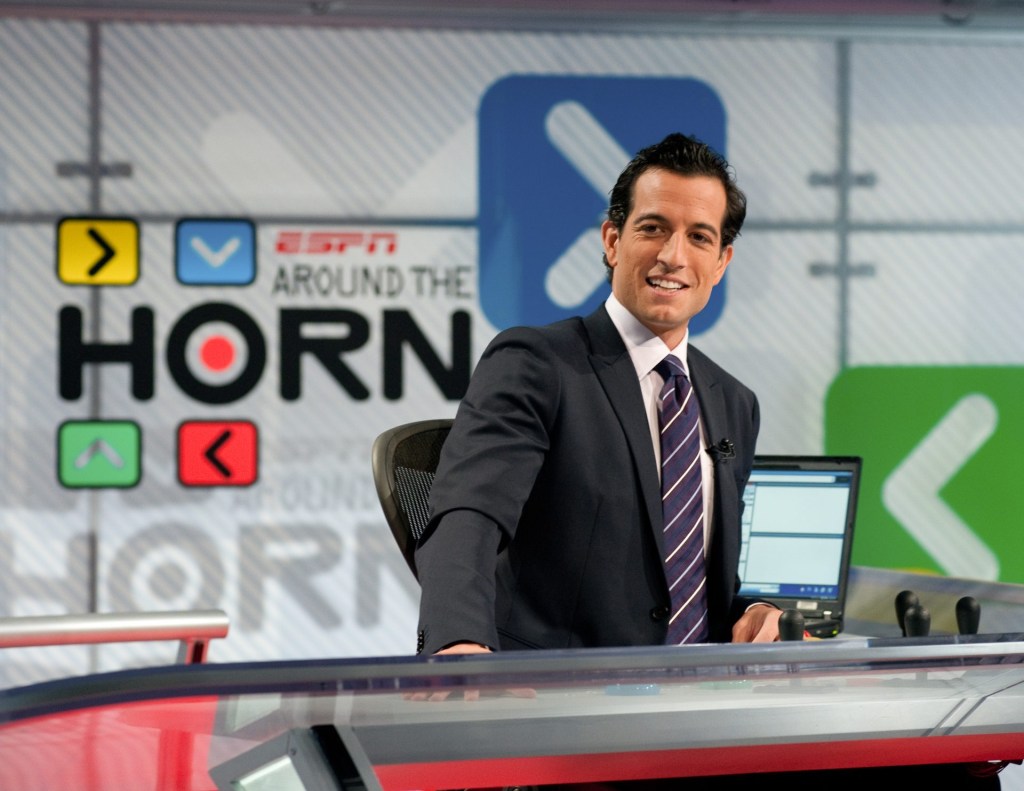
Ramona Shelburne
The showdown is all about having quick one-liners. Everybody knows I’m not brief. I always talk too much, because I’m a reporter and I tell stories and I dive into things. I kept losing against Kate Fagan. I think I lost maybe like my first six or seven showdowns against her. I had a good batting average, but I didn’t have any slugging. It’s not like I would choke; it just didn’t play to my skill set. Then I realized I should probably start coming up with lines in advance.
I loved being on with Woody Paige. That guy knows so much. I mean, first of all, he gets the show. He’s funny as hell. Obviously, he’s an older guy now, but he’s still out going to Nuggets games. He’s still out covering all the Denver teams—the Rockies and the Broncos. And he knows all the decision-makers and everything behind the scenes. He’s not just reading some article or some tweet and having a hot take. This is like decades of experience and background and I don’t know—there’s not really a place for it right now. Most of the debate shows, most of the stuff on any network programming, is done through a big national lens and what’s buzzy on social media or what’s specialized in particular sports. You really lose a lot of that local perspective.
Pablo Torre
I don’t know if it was my very first episode, but it may well have been. It’s known in the lore of Around the Horn and my life, unfortunately, as the “Alex Smith, man” moment. Around the Horn is a show where you have—between the other three panelists, Tony, and coordinating producer, Aaron Solomon—five voices in your ear, at any given moment. And so I remember first learning how to grapple with that when Aaron got in my ear to say “wrap,” which is to say, “Don’t stop immediately, but finish your thoughts and get the ball back to Tony.” And when I heard it for the first time, I basically froze and stopped short. And the only sentence that came out of my mouth as I was mid-take but needed to find an end, a punctuation mark, was the phrase “Alex Smith, man.” Everybody paused and then burst out laughing on the show. And that made air. And it’s pretty embarrassing. The laughter from Bomani Jones upon hearing me very awkwardly stop talking mid-sentence—as if that was my grand conclusion—has haunted me for 13 years.
I had been picking a 16-seed to beat a one-seed in the NCAA tournament for about a decade. When I started it, no one else was daring to do that on sports television because no one had ever seen it. It was ridiculous. It was a crazy take. But my take from the very beginning was we’re now overdue statistically for this to happen. So every year I’m going to pick the 16-seed I think is going to do this. And year after year, of course, I got muted and I lost points because I never got it right. The year that it happened, when UMBC beat Virginia, I picked a different 16-seed. So I was punished by Tony with a minus 300-something point mark. It was something that I still continue to fight because I believe that I should get credit as the Copernicus of the NCAA tournament. Like, people didn’t appreciate me and my time, and they threatened me with punishment for being so right, even though I was technically wrong. And I just remember feeling like this is in some ways the culmination of a decade of takes. I think I learned that day that you could actually get into the minus three digits.
The thing I’m going to miss, frankly, is just like hanging out with my friends every week. I cannot tell you how radically different my experience doing the show became when I compare it to how I felt when I said “Alex Smith.” At a certain point, it became clear that I wasn’t auditioning, that I was in the family—and the comfort and the encouragement and Tony being so deeply generous to me. All of these panelists were generous to me who were older and more accomplished. I just will never forget how welcoming they were. And once I knew that they considered me one of them, it just became a thing that I stressed out about 0.00%. I’m going to miss getting to see literal Hall of Fame journalists who I once saw on my television—and now see as my friends.
Clinton Yates
You’ve got to find your way in. I remember the first thing that ever really caught on was when I was telling folks, “Quarterback is the worst-coached position in the league.” And I’m not moving off of that. After a while, people were like, “You know what, the kid actually kind of knows what he’s talking about.” And that was what I was more concerned about was how everybody else on the show was going to think of me. Because your peers are far more important when you’re first getting into something than anybody on the outside.
The freeze frame was cool. When we went away from the freeze frame, I was actually pretty bummed out. The freeze frame was my profile picture on social media for a long time, because it didn’t look like anything else on TV. I still have three or four of those saved in my camera roll somewhere. I’ll probably break those out when the show finally ends and go back down memory lane. The glass breaking was cool, but I don’t think anything can really beat the freeze frame.
When you think about what a host is in any context, it’s about somebody that makes you feel welcome, somebody that understands the parameters of what they’re doing, and somebody that enjoys being in that role. One of the good things about Tony is that people think that he was sort of a smart-aleck early on because he knew a lot of stuff. But if you had a real deal story to tell Tony, he would reward that in a way that wasn’t just about points. He was very much understanding of the fact that the people who were panelists were equally as important as anything he could say. And making you feel like you have the space to do that is part of the hard part.
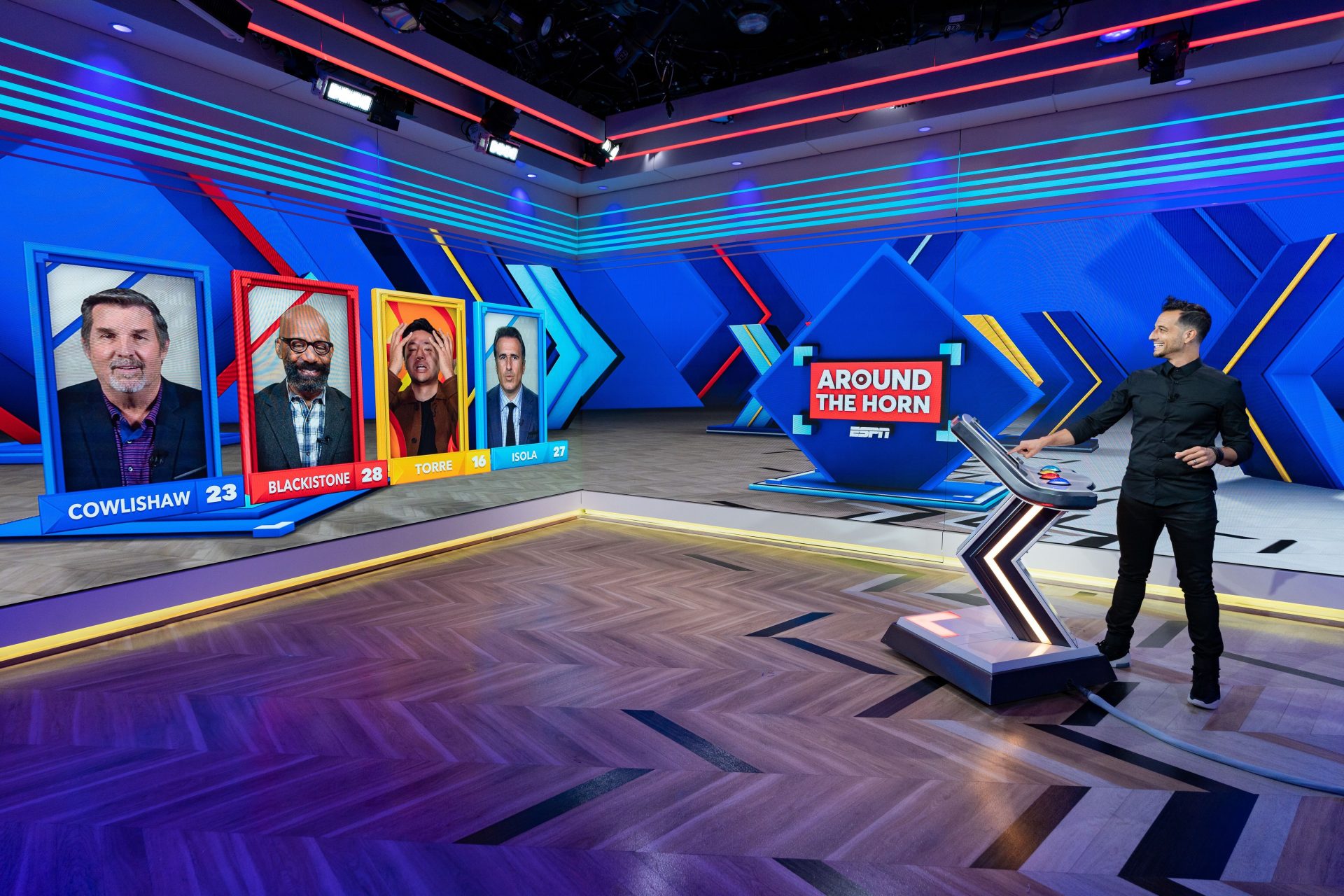
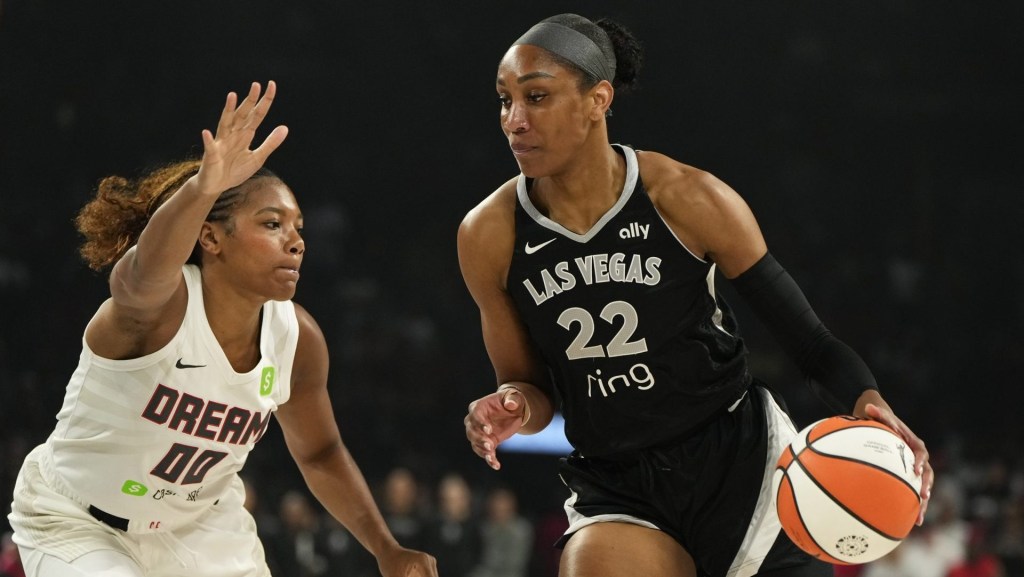
![[Subscription Customers Only] Jul 13, 2025; East Rutherford, New Jersey, USA; Chelsea FC midfielder Cole Palmer (10) celebrates winning the final of the 2025 FIFA Club World Cup at MetLife Stadium](https://frontofficesports.com/wp-content/uploads/2026/02/USATSI_26636703-scaled-e1770932227605.jpg?quality=100&w=1024)

